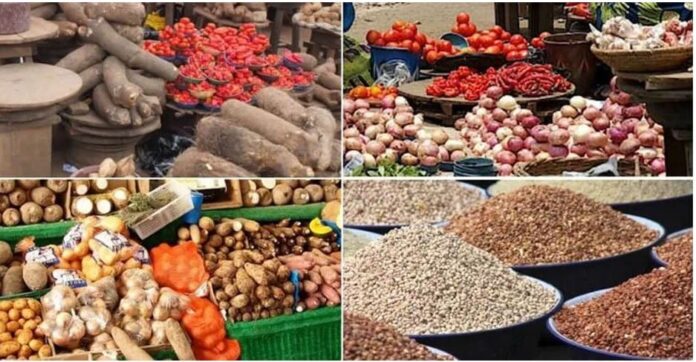Nigeria’s food inflation stoked by CBN forex restrictions, says World Bank
By Jeph Ajobaju, Chief Copy Editor
Food inflation is being stoked by restrictions on imports and the fixed foreign exchange (forex) system of the Central Bank of Nigeria (CBN), making it hard for the country to feed its 206 million population, says the World Bank.
“The current regime is keeping the official exchange rate of the naira artificially strong while the naira has weakened significantly on the parallel market.
“Additionally, the central bank has restricted importers’ access to foreign currency for 45 products and has reduced the supply to other importers,” the World Bank wrote in a new biannual report titled Africa’s Pulse.
“Inflation reached a four-year high at 18.2 per cent in March 2021, then eased to 16.0 per cent in October 2021 as food price inflation fell from a peak of 22.9 per cent in March to 18.3 per cent.
“Headline inflation rose to 15.7 per cent in February 2022, up by 0.1 percentage point from the two preceding months.”
_____________________________________________________________
Related articles:
World Bank says 82.4m Nigerians now deeper in poverty
Rising food prices feeding on insecurity, high fuel cost
Dangote seeks Abuja’s food plan amid Russian-Ukrainian war
Nigeria mounts up N3.1b food import bill as local production struggles
_________________________________________________________________
Food inflation rises despite fuel subsidies
Food and fuel shortages weigh on consumer prices despite fuel subsidies, the World Bank added, saying the war in Ukraine would likely worsen inflation rates, per reporting by The PUNCH.
“Food and fuel shortages put pressure on consumer prices despite fuel subsidies. Inflation is expected to remain high as the negative effects of the war in Ukraine are still coming through, with an annual projection of 14.8 per cent for 2022.
“Going forward, headline inflation is forecast to decline gradually to 13 and 11 per cent in 2023 and 2024, respectively.”
Global inflations surge
Latest National Bureau of Statistics (NBS) data shows that Nigeria’s Consumer Price Index (CPI) rose to 15.92 per cent in March, the highest since November 2021 when it was 15.99 per cent.
The rise in inflation rate shows Nigeria is not immune to the current global inflation surge.
Abuja begins distribution of 40,000 mt of grain
The federal government began on 14 April the distribution of 40,000 metric tonnes (mt) of grain to mitigate the impact of high prices of agricultural produce across the country.
Agriculture and Rural Development Minister Mohammad Abubakar flagged off the distribution at the Karamajiji Internally Displaced Persons (IDP) Camp in Abuja, which he said was picked to highlight the fact IDPs are the most affected.
Said he: “The high prices of commodities in the market have affected the cost of production of various kind of foods, including poultry, and others.
“This distribution will include some poultry because they are also part of the dietary assortment that we need to make sure is available. For this, we are distributing to the public.
“This will be done not just by the Federal Ministry of Agriculture and Rural Development but other ministries, including the Humanitarian Affairs Ministry, which will be distributing about 12,000 metric tonnes.”




